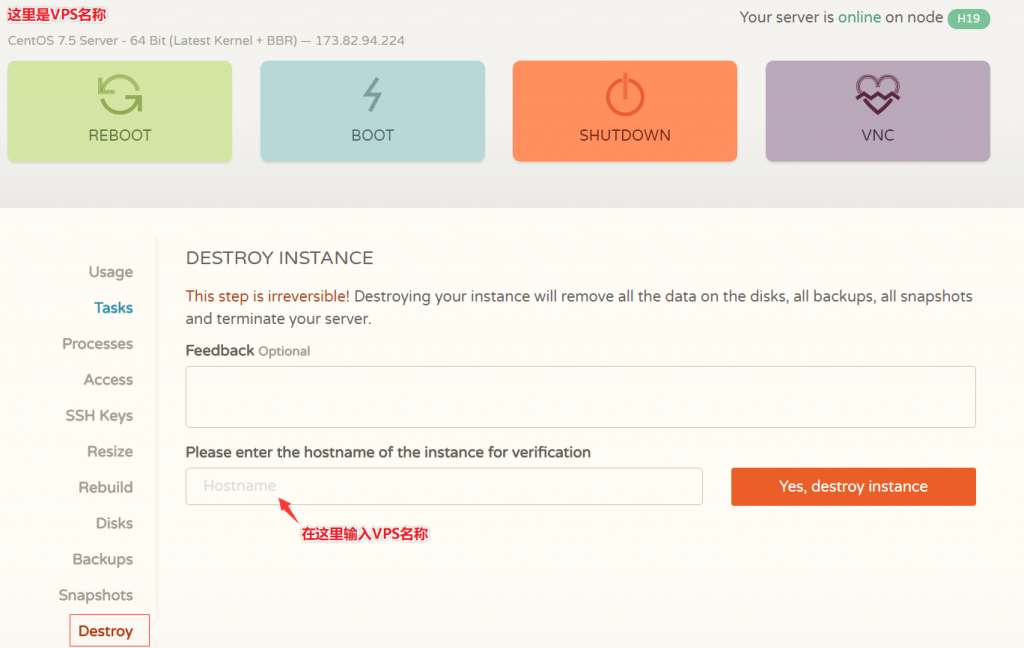materialculture
culture 时间:2021-04-29 阅读:()
CULTUREANDSOCIETYBDeficitsDon'tMatter^:Abundance,IndebtednessandAmericanCultureRobKroesPublishedonline:3March2015#TheAuthor(s)2015.
ThisarticleispublishedwithopenaccessatSpringerlink.
comAbstractIfdeficits,nordefaults,don'treallymatterany-more,whatsignofourtimesisitWhathaschangedfromthedaysthatFranklinDelanoRooseveltriskedthefragileeconomicrecoveryfromthegreatdepressionbyreturning,in1937,tothestandardofhiseconomicorthodoxy,abeliefinfiscalrectitudeandanaversiontodebtsanddeficitsIfthatwasasignofacertainAmericancharacter,whathashappenedtoitAmassiveshiftinpublicculturemusthaveoccurred,affectingpeople'sviewsonpublicprobityandpoliticalrecti-tude.
Thefollowingisanattempttotracesomeofthemainshiftsonthewaytoourpresentquandary.
KeywordsU.
S.
economicpolicy.
Americancharacter.
U.
S.
culture.
Culturalcritique.
Neo-liberalismInaconversationbetweenvice-presidentDickCheneyandSecretaryoftheTreasuryPaulO'NeillCheneyisquotedassaying:BReaganproveddeficitsdon'tmatter.
^Itisonetellingquotationamongmanythatshowtheprevailinghubrisingovernmentcirclesatthetime,abeliefofhavingcastofftheshacklesofeconomicreality.
Thehubrisisstillthere,unabat-ed.
Inareviewoftwobookstracingbackthelinesofdevel-opmentofthishubristothedaysofNixonandReagan,RobertG.
Kaiserremindshisreadersofthe2013HouseofRepresen-tativesvotetoraisethenationaldebtceiling.
FailingtodosowouldeffectivelyforcetheUnitedStatestodefaultonitsobligationstocreditors.
Theceilingwasdulyraised,but144Republicanmemberssaidno.
Anumberamongthemexpressedconfidencethatdefaultwouldn'treallymatter(myitalics).
Kaisergoesontosay:B…thata144membersoftheHousewerewillingtocastavotetodefaultonthefullfaithandcreditoftheUnitedStatesisasignofourtimes.
^Ifdeficits,nordefaults,don'treallymatteranymore,whatsignofourtimesisitWhathaschangedfromthedaysthatFranklinDelanoRooseveltriskedthefragileeconomicrecov-eryfromthegreatdepressionbyreturning,in1937,tothestandardofhiseconomicorthodoxy,abeliefinfiscalrectitudeandanaversiontodebtsanddeficitsIfthatwasasignofacertainAmericancharacter,whathashappenedtoitAmas-siveshiftinpublicculturemusthaveoccurred,affectingpeo-ple'sviewsonpublicprobityandpoliticalrectitude.
Thefol-lowingisanattempttotracesomeofthemainshiftsonthewaytoourpresentquandary.
1DebtsinAbundanceIntheearlydaysofwhatitsguidinglightsandeagerfollowerscalledtheAmericanStudiesMovement,intheUnitedStatesinthe1930sand'40s,andspreadingabroadintotheearlyColdWaryearsunderU.
S.
culturaldiplomacyauspices,thequestwasonforestablishinganddefiningwhatwasvariouslycalledtheAmericanidentity,theAmericancharacter,theAmericanmind,oreventheAmericanSelf.
Agreementwasneverreached,whichonlyaddedtotheappealofthequest.
Literarystudies,thestudyofhistory,andthenewlyreputablesocialscienceswereallyokedtogetherinthehotpursuitofthiselusive,ifnotchimeric,target.
Forgoodmeasure,rivalstoriesoforiginwerethrownintothemix.
Puritanoriginswereastrongcontender,fromPerryMiller'sErrandintotheWildernesstoSacvanBercovitch'sThePuritanOriginsoftheAmericanSelf.
ButsowerestoriesofAmerica'sgivennaturalresources,ofAmericaascornucopia,asinDavidPotter'sPeopleofPlenty,orstoriesofAmericaasanideologicalblanksheet,opentobeinscribedwithEuropeanliberalism,tothe1RonSuskind,ThePriceofLoyalty:GeorgeW.
Bush,theWhiteHouse,andtheEducationofPaulO'Neill(NewYork:SimonandSchuster,2004)334.
RobertG.
Kaiser,BOurConservative,Criminal,Politicians,^TheNewYorkReviewofBooks,(November6,2014)56.
R.
Kroes(*)P.
O.
Box19268,1000GGAmsterdam,TheNetherlandse-mail:R.
Kroes@uva.
nlSoc(2015)52:174–180DOI10.
1007/s12115-015-9879-1exclusionofitsEuropeanrivals,asinLouisHartz'sTheLib-eralTraditioninAmerica.
Otherswereworkingparallelveins,suchasRichardHofstadter,andDanielBoorstin.
TheywereallintheirownwayvaryingonthethemeofAmericanexcep-tionalism,exploringthemesofBdivineelection^orBchosenness,^orofmanifestdestinyandthefore-ordainedwestwardcourseofempire,orofgeographicaldeterminism,followinginthefootstepsofFrederickJacksonTurner'sfron-tierthesis.
Asforthehistoriansamongthese1950s'writers,referenceissometimesmadetothemasconstitutingaBschool,^theschooloftheconsensushistorians.
Thewordisfelicitous,highlightingasitdoesacrucialpre-conditionfortheexistenceofsomethinglikeanAmericanMind,oranAmericanSelf.
Ittakesasharedhistoryoflike-mindedness,anational—ifnotnotional—consensus,fortheretobesuchathingasonenationalidentity,oronenationalcharacter.
Yet,giventhisfeveredquestforonesharednationalchar-acter,recognizablythereineachofitsindividualcarriers,itisnothingbututterlyironicthatmuchoftheintellectualdebateintheUnitedStatesinthe1950swassetbyabookthatwasouttoexploreBthechangingAmericancharacter.
^Iamre-ferringofcoursetoTheLonelyCrowd,abookcommonlylinkedtothenameofHarvardsociologistDavidRiesman,butreallytheresultofteamwork.
2Ratherthanbringinghis-toricaldatatogethertobuttressthecaseforonenationaliden-tity,Riesmana.
o.
suggestedthathistoricallyAmericamayhaveknowntwoorthreemodalcharacters,followingeachotherintime,andeachwithitstypicalmodesofbehavior,culturaltastesandappetites,andindividualcharacterstruc-ture.
Imayremindyouhereofthetwomaincharacterstruc-turesthatRiesmanrecognized.
Historically,heseesBinner-directedman^givewaytoBother-directedman.
^Inner-directedmanistheself-reliantandself-sufficientcharacter,redolentofthePuritanindividualguidedbyaninnersenseofrighteousnessanddirection,aninnercompass,asRiesmanmetaphoricallycalledit.
Other-directedmanisthesuccessorpersonalitytype,enteringthestageinthewakeofradicalsocialtransformations.
Inaneweraofgreatersocialinterdependenceandmuchmorerapidsocialandculturalchange,parentsarenolongerabletoequiptheirchildrenforlifewiththeirowninnercom-pass.
Theynowneedtobetrainedtobecomesocialanimals,takingtheircuesonadailybasisfromtheirpeers,adaptingtheirbehaviorandtastesaccordingly,adoptingthehueandcolorofthesettingstheyfindthemselvesin.
Theynoworientthemselvesbyusing,notaninnercompass,butwhatRiesmancallstheirinnerradar.
Otherclassictextsfromthe1950sfur-therfleshedoutthistype,suchasWilliamH.
Whyte'sTheOrganizationMan,highlightingthestructuralsettinginwhichincreasingnumbersofpeoplespenttheirworkinglives,thebureaucraticsettingofthelarge-scalebusinesscorporationorgovernmentorganization.
Riesman,asIshallargue,isonlyoneamongmanyauthorswhosetouttorecognizetidalchangesindominantcharactertypesinAmericanhistoryastheyrelatetounderlyingsocialandeconomicchanges.
Aspeople'scharacteristicpatternsofdependence—financialdependencethroughindebtednesscriticallyamongthem—changeandastheylosesuchmea-suresofautonomyastheymighthavegrownusedtoseeingasrightfullytheirs,characterstructuresandlargerpatternsofcultureareassumedtoreflectthesechangesandtoturnintotheirsymbolicrepresentations.
Ofcourse,astheworldbecameincreasinglybureaucraticinitspatternsoforganizingsocietyandaspeoplebecameenmeshedinlarge-scalestructurescontrollingtheirlives,theynolongerhavetheoption,asPolonius,inShakespeare'sHamlet(ACTISCENEIII)putsittohissonLaertes:BThisaboveall,tothineownselfbetrue.
^Theyhavetoplaybytheever-changingrulesofsocialgames,thatRiesman,forone,tooksardonicpleasureinanalyzing.
Butmypointis,Riesmanwasnottheonlyonetodothis.
Hestandsinalonglineofsocialcriticswhoreadthesignsofthetimesinthechangingbehaviorpatternsoftheircontemporaries.
Iwilltakeyouonatourd'horizonofsuchcriticalwriting.
Cantheyteachusany-thingonthewaysinwhichpatternsofdependence—financialdependenceincluded—havebeenreflectedinthemodesandtonesoflargerculturaleras.
ThiswillthenleadtomyultimatequestionconcerningthecurrentstateofaffairsinAmerica.
WhatpossibleculturalreflectionscanweseeofacurrentsituationwhereallofAmerica,ateverylevel,internationallyasasovereignstate,nationallyasagovernment,anddownfromtheretothelevelofindividualbusinessesandfamilies,isindeficit,onascaleofindebtednessunprecedentedinitsnationalhistoryArethereanyclearsignsofculturalcharac-tersemergingtoreflectthisstateofaffairsChangesinCulturalCharacterItwouldbetemptingtoseeRiesman'sTheLonelyCrowdasanodalpoint,aconceptualhub,whereseverallinesofintellec-tualgestationcametogetherbeforeitwouldinspirelaterpor-traitsofAmericancultureinbroadlythesamevein.
Undoubt-edlylaterwork,likeChristopherLasch's1979studyofTheCultureofNarcissism:AmericanLifeinanAgeofDiminishingExpectations,canbeseentoechosomeofRiesman'scentralcharacters,yetbetweenthe1950sandthe1970sdramaticshiftshadoccurredinAmerica'sstructuralsetting.
Apostwareraofexplosivegrowthandallitsunset-tlingimpactonthepopulation'srisingexpectationshad,bytheearly1970s,turnedintoitsopposite,ofeconomicstagfla-tionanddiminishingexpectationsofindividuallifechances.
2DavidRiesman,NathanGlazer,ReuelDenney,TheLonelyCrowd:AStudyoftheChangingAmericanCharacter(Newhaven:YaleUniversityPress,1950)Soc(2015)52:174–180175AsLaschputsit,everyagedevelopsitsownpeculiarformsofpathology,whichexpressinexaggeratedformitsunderlyingcharacterstructure.
ThepathologythatLaschchosetouseasthemetaphorfortheprevailingcharacterstructureoftheBMe-decade^isnarcissism.
Itisanagethathadseentheeclipseofindividualachieve-mentandofthesatisfactionsofitspursuit.
BTodaymenseekthekindofapprovalthatapplaudsnottheiractionsbuttheirpersonalattributes.
Theywishtobenotsomuchesteemedasadmired.
^(p.
59)Laschstandsinalonglineofcriticsofmasssociety.
Helocatedthepivotofmodernpsychicdevelopmentintheriseofmassproduction,withitsconcomitantdeskillingofworkers,destructionofeconomicindependence,changeinrelationsofauthorityfrompersonaltoabstract,andtheprofessionalizationofeducation,management,mentalhealth,socialwelfare,andthelike.
Theresultofthoseepochalchangeswasadrasticchangeinthesocializationofchildren.
Individuation—theprocessoftheformationofindividualselves—largelyconsistsofthegradualreductioninscaleofinfantilefantasiesofom-nipotenceandhelplessness,accompaniedbythechild'smod-estbutgrowingsenseofmastery,continuallymeasuredagainstitshumanandmaterialsurroundings.
Formerly,thepresenceofpotentbutfallibleindividuals,economicallyself-sufficient,withfinallegalandmoralauthorityovertheirchildren'supbringing,providedonekindoftemplateforthegrowingchild'spsychicdevelopment.
Asfathers(andincreas-inglymothers)becomeemployees,withthefamily'seconom-icsurvivaldependentonremote,abstractcorporateauthori-ties,andascaretakingparentswereincreasinglysupervisedorreplacedbyeducational,medical,andsocial-welfarebureau-cracies,thetemplatechanged.
Thechildnowhasnohuman-sizeauthorityfiguresintheimmediateenvironmentagainstwhichtomeasureitselfandsoreduceitsfantasiestohumanscale.
Asaresult,itcontinuestoalternatebetweenfantasiesofomnipotenceandhelplessness.
Thismakesacceptanceoflimits,finitude,anddeathmoredifficult,whichinturnmakescommitmentandperseveranceofanykind—civic,artistic,sexual,parental—moredifficult.
Theresultisnarcissism,whichLasch,intheopeningpagesofCultureofNarcissism,describedthus:Havingsurrenderedmostofhistechnicalskillstothecorporation,[thecontemporaryAmerican]cannolongerprovideforhismaterialneeds.
Asthefamilylosesnotonlyitsproductivefunctionsbutmanyofitsreproductivefunctionsaswell,menandwomennolongermanageeventoraisetheirchildrenwithoutthehelpofcertifiedexperts.
Theatrophyofoldertraditionsofself-helphaserodedeverydaycompetence,inoneareaafteranother,andhasmadetheindividualdependentonthestate,thecorporation,andotherbureaucracies.
Narcissismrepresentsthepsychologicaldimensionofthisdependence.
Notwithstandinghisoccasionalillusionsofomnipotence,thenarcissistdependsonotherstovali-datehisself-esteem.
Hecannotlivewithoutanadmiringaudience.
Hisapparentfreedomfromfamilytiesandin-stitutionalconstraintsdoesnotfreehimtostandaloneortogloryinhisindividuality.
Onthecontrary,itcontributestohisinsecurity,whichhecanovercomeonlybyseeinghisBgrandioseself^reflectedintheattentionsofothers,orbyattachinghimselftothosewhoradiatecelebrity,power,andcharisma.
Forthenarcissist,theworldisamirror,whereastheruggedindividualistsawitasanemp-tywildernesstobeshapedtohisowndesign.
Narcissismreferstoaweak,ungrounded,defensive,insecure,manip-ulativeself—whatLasch'snextbook,eponymouslytitled,labeledBtheminimalself.
^YetreadersmaybeforgiveniftheyrecognizeinLasch'snarcissisticpersonalitythetraitsofRiesman'sother-directedman.
Laschvehementlydeniesthesimilarity,thefamilylike-ness.
Asheargues,BAmericanshavenotreallybecomemoresociableandcooperative,asthetheoristsofother-directionandconformitywouldlikeustobelieve,theyhavemerelybecomemoreadeptatexploitingtheconventionsofinterper-sonalrelationsfortheirownbenefit.
^(p.
66)ThiscouldonlybearguedbysomeonetotallymissingoutonthesardonicpleasureRiesmantakesinanalyzingpreciselytheone-upmanshipinvolvedintheinteractionsofother-directedper-sons,withtheireyeonthemainchancetoupstageothers.
Riesman'sother-directedmanismorethanjusttheincarnationofDaleCarnegie'ssmoothsocialoperator,thecentralcharac-terofhisimmenselysuccessful1936BHowto…^book,andheldupasamodelforalltofollowontheirwaytosuccess,Bwinningfriendsandinfluencingpeople.
^Carnegiedidcatchunfailinglyaculturalshiftunderwayeversincethe1920s,ademotionofcertainlong-respectedvirtues,wherecharactergavewaytopersonality,self-controltoself-fulfillment,indus-tryandthrifttoskillathandlingpeople.
Carnegie'sengineer-ingoftheselfconstructedamodelofmodernindividualismcomposedentirelyofserialimages,disjointed,lackinganylogicofinnercohesion,withnosturdycommitmentsorbe-liefs,nofirmmoralstandards,noauthenticandrootedcoreofself,(wordsthatmighthavebeenLasch's,butarenot).
3InCarnegie'sview,itconsistedonlyofapliablepersonalityea-gertopleaseothersandadvancesociallyandeconomically.
AllthiswemayrecognizeinRiesman'stypeoftheother-directedman,orforthatmatter—thinkofBnoauthenticandrootedcoreofself^—inLasch'snarcissist.
ButthereissomuchmorethatfeedsintoRiesman'sperspective,andintohistongue-in-cheek,picaresquepantheonoftrickstersandconfidencemen.
Afterall,whocanforgettheunforgettable3ThewordsarequotedfromStevenWatts,Self-HelpMessiah:DaleCarnegieandSuccessinModernAmerica(OtherPress,2014)176Soc(2015)52:174–180personaethatRiesmanconjuredup,liketheinside-dopester(awordittookmeyearstoprobeinitsdepthsofAmericancolloquialresonance)ThereareechoeshereoftheChicagoSchoolinSociology,andcentralfigureslikeGeorgeHerbertMeadandHerbertGeorgeBlumerandtheirideasonsymbolicinteractionism,echoesalsoofseminalinsightsintothesocialconstructionoftheself,asaprocessofongoingsocialnego-tiationsandinteractionslikesomanyfeedbackloopsinformingpeople'strajectorytowardsself-definition.
OneisalsoremindedofErvingGoffman,anotherChicagoSchoolnameandauthoroftheclassicThePresentationofSelfinEverydayLife.
Theyareallexamplesofaspecialintellectualsensibilityandanalertnesstoconceptslikepersonalityandcultureseenasessentiallyopenandinflux.
Goffmaninpar-ticularhadanearandaneyeforthetricksterelementinallthis,forthehistrionicsandtheatricalityinpeople'ssocialstrategies.
YetanotherresonancethatwemaypickupreadingRies-manistheunmistakablevoiceofThorsteinVeblen,oddmanoutinthehistoryofAmericansociologyandeconomics,yetaone-manfountofinsight,critiqueandsardonicwit.
Hewroteatatime,inthelate19th,early20thcentury,ofrapidtrans-formationacrossawideswatheoflifeinAmerica.
RelativelatecomertoindustrializationandurbanizationthatAmericawas,muchlikeGermanyinEuropeinthefeveredcatch-upofitsso-calledBGründerjahre^—theyearsofindustrialtake-off—studentsofsocietyinbothcountriesinventednewconceptsforanalyticallycapturingtheadventofmodernization.
TheseweretheyearsthatAlanTrachtenbergwouldcalltheageofincorporation,theyearsinwhichabusinessparadigmoflarge-scalerationalorganizationbegantodictatemostpeo-ple'sworkadaylives.
Notonlyhadthesystemsofproductiondramaticallyincreasedinscale,sohadtheattendingsystemsofcontrolandgovernance.
Increasingnumbersofpeoplehadbecomeenmeshedinawebofbureaucracy,puttingthematanevergrowingremovefromtheactuallineofproduction.
Aparallelworldarose,ofstaffworkersalongsidelineworkers,aworldofgrowingabstractness,losingpointandpurposeforthoseinvolved.
ThisnewworldwasexploredandanalysedinGermanybyleadingearlysociologistslikeMaxWeberorAlfredTnnies.
WebercameupwiththemetaphoroftheBironcage^tocapturethesocialexperienceoflifeinabu-reaucraticsetting.
Tnniesintroducedthepairofopposedcon-ceptsofGemeinschaftversusGesellschaft,wordsthatintheirEnglishtranslationlosetheevocativeforcetheyhaveinGer-man.
EarlyAmericansociologycameupwithafelicitousparallel,though,opposingprimarytosecondarysocialrelations.
Inthisviewtherichaffectiveresonanceofprimarygroups,likethefamily,neighborhoodandlocalcommunity,stoodopposedtothecoldandformalqualitiesofsecondaryrela-tions,connectingpeoplemerelythroughformalizedsocialroles.
Thelatterevoketheworldoftheofficewindow,banktellers,secretariesanddeskworkers,aworldthatwasincreas-inglyliquid,losingformandmeaningfortheself-definitionofallthoseinvolved,eatingawayatthemany-strandedbondsofcivilsociety,erodingitssocialcapital.
InthisBGreatTransfor-mation,^asKarlPolanyimemorablycalledit,aself-regulatingmarketwastoemerge,turninghumanbeingsandthenaturalenvironmentintocommodities.
4Yet,asmanyobserversatthetimenoted,humanbeingsdidnottakethislyingdown.
Newsocialstagesforpublicself-definitionevolvedwhichallowedpeopletoexploreearlyformsofaconsumptionculturewithaviewtosettingthem-selvesapartfromothersanddistinguishthemselvesinthepubliceye.
ThisisthestagethatVeblenexposedinhisfirstpublishedbook,TheTheoryoftheLeisureClass.
Initheletshiseyesroamacrossthewidearrayofstrategiesofsocialdistinctionthroughtheostentationofspendingbehavior.
Hissardonicwitcoinedphrasesforthedescriptionofthisbehav-iorthatsurviveuntilthepresentday,wordssuchasBconspicuousconsumption,^Binvidiousdistinction,^orBmarginaldifferentiation.
^5Thelatterterminparticularsur-vivedthroughFreud'sreflectionsonthenarcissismofminordifferencesfortheexalteddisplayofindividuality.
Incurrentpost-modernanalyses,thestrategicpointinusingthisformofnarcissismistoachieveasuperficialsenseofone'sownuniqueness,anersatzsenseofindividualdistinctnesswhichisonlyamaskforanunderlyinguniformityandsameness.
IfVeblenistorankasasocialandculturalcritichereisthereasonwhy:heexposedtheunderlyingvacuityofanerawhoseculturalparametersweresetbytherobberbaronandthealienatedofficeworker.
Ifthereisadialecticatworkhere,itisthatbetweenthealienatedmanyandtheextortionistfewwhomanagetogetsomethingfornothing.
Itisthegroupwho,notunlikeKarlMarx'sexpropriatingcapitalists,havekepttheireyesonthemainchanceandthemainprize.
Withchar-acteristicsarcasmVeblencallsthemtheimpropriators,reviv-inganoldwordfromtheworldofcanoniclawtohighlighttheimproprietyofexpropriation.
BSotherehasbeenincorporatedinAmericancommonsenseandhasgrownintoAmericanpracticethepresumptionthatallthenaturalresourcesofthecountrymustofrightbeheldinprivateownership,bythosepersonswhohavebeenluckyenoughorshrewdenoughtotakethemoveraccordingtotherulesinsuchcasesmadeandprovided,orbythosewhohaveacquiredtitlefromtheseorig-inalimpropriators.
^6Asonefurtherinterpretativerevisitoftheeraremindsus,thetellingmetaphorfortheperiodmaybeitsfashionablemiddle-classafflictionwhichwentbythenameof4KarlPolanyi,TheGreatTransformation[ForewordbyRobertM.
MacIver](NewYork:Farrar&Rinehart.
,1944)5S.
Freud,CivilizationandItsDiscontents(NewYork:W.
W.
Norton&Company,Inc.
,1961)6WesleyC.
Mitchell,ed.
,WhatVeblenTaught:SelectionsfromtheWrit-ingsofThorsteinVeblen(NewYork:TheVikingPress,1945)372Soc(2015)52:174–180177neurasthenia,bestdescribedasthephysicalsymptomsofFrenchpoetPaulVerlaine'sBlangueurmonotone.
^Neurasthe-nia,asauthorT.
J.
JacksonLearssuggestsinhisNoPlaceofGrace,7wasthemedicalizedexpression,ifnotrepresentation,ofamoregeneralfeelingthatinviewofmodernlifehavinggrowndryandpassionless,onemustsomehowtrytoregen-eratealostintensityoffeeling.
Butnotonlythat.
AsJacksonLearspointsout:BLateVictoriansfelthemmedinbybusy-ness,clutter,propriety;theywerebesetbyreligiousanxieties,andbydebilitatingworriesaboutfinancialinsecurity.
^TherewasafinancialdimensiontothewayAmericansrespondedtothetransformationoftheircollectivelifeinthelate19thcen-tury.
Itiswhatdrovethenewgamesplayedwiththecommod-itiesproducedbyAmerica'sindustrialmachine,transformingthemintosignsandsymbolsofmaterialsuccessinasocialarenashotthroughwithstatusanxietiesandfeelingsofeco-nomicinsecurity.
WhetherornotindividualAmericanscameoutontop,theywereallequallydrawnintoanewsocialgamethatbeforelongwouldformanintegralpartofAmerica'snascentcultureofconsumption.
Thatculturaltransformationcamewithitsownkeyword,abundance.
AtlonglasttheAmericanDreamcouldappeartohavecomeintoitsown,unlockingaveritablecornucopia,fulfillingwhathadinfactbeenage-oldEuropeanfairytaledreamsofalandofplenty,BunpaysdeCocaigne^(whichtodaydoesnotsoundrightiftranslatedbackasalandofcocaine)orforthatmatteraMarxiandreamofarealmofscarcitybeingreplacedbyarealmofaffluence.
Enteringthe1920sAmericaseemedtohaveledthewayintothisrealm,evenintheeyesofassortedEuropeansocialists,syndicalistsandevencommunists.
JacksonLearsmadeabundancethetopicofaseparatestudy,publishedasFablesofAbundance:ACulturalHistoryofAdvertisinginAmerica.
8Similarly,oneoftheseminalau-thorsinthisfield,fatherofcontemporaryculturalhistoryandculturalstudiesasweknowthemtoday,WarrenSusman,sug-gestedasthebackdropforhisexplorationsof20th-centuryculturaltrendsinAmericathesinglewordabundance.
9B…strugglingtoarticulateformyselfandmystudentssomedef-initionofwhatourcultureislikeandhowitgotthisway,IfindthatIwasdevelopingalmostunconsciouslyawayofunder-standingAmericanculture:IwascomingtoseeAmericathroughthenotionof'thecultureofabundance.
'^(p.
xx)Ashecametoseeit,oneofthefundamentalconflictsoftwentieth-centuryAmericaisbetweentwocultures—anolderculture,oftenlooselylabeledPuritan-republican,producer-capitalistculture,andanewlyemergingcultureofabundance.
Asthosefamiliarwithhisworkwillremember,Susmanreallymadehismarkdevelopingapproachestotheproblemofcap-turingsignsofthisculturaltransformationtakingplace.
Work-inginapre-digitalage,hetrulymorphedintoaone-manlogarithm,pioneeringworkthatwouldlaterbeknownasda-ta-mining,producingwordcloudsasifhewereacutting-edgedigitalhistorian.
WordcloudsYes,worldclouds.
Withchar-acteristicinquisitivenessandsensitivitytotheusesoflan-guagehestruckuponsubmergedshiftsinthefrequencywithwhichwordswereused,unearthingwordsthatwerebecomingtheshibbolethsoftheirage.
Wordscameinpackages,coher-ingthroughtheircontextualuses;somewereonthewayout,fallingintodisuse,otherspushedforward.
AndSusmanpre-sentedthemaswordclouds.
HereisSusmanatwork:BInitialinvestigationstoanswersuchquestionsyieldedsuggestionsofsignificanttransformation.
Keywordsbegantoshowthem-selves:plenty,play,leisure,recreation,self-fulfillment,dreams,pleasure,immediategratification,personality,publicrelations,publicity,celebrity.
Everywheretherewasanewemphasisonbuying,spending,andconsuming.
^(p.
xxiv)Inabrilliantchapterheshowshowtheolderculture,Puritan-republican,producer-capitalistdemandedsomethingitcalledBcharacter,^whichstressedmoralqualities,deeplyingrained,whereasthenewercultureinsistedonBpersonality,^whichemphasizedbeinglikedandadmired.
ItisnothardtoseethesetwokeywordsasforeshadowingRiesman'slatersocialtypesoftheinner-directedmanandtheother-directedman,onlytakenforwardintimetotheturnofthe19thcentury.
SusmanandJacksonLearsbothmentionadvertisingasacriticalnewuseofnewtechnologiesofmasscommunicationforthenewworldofabundanceandmassconsumptiontofunctionsmoothly.
Susmanevenmentionsoneofadvertis-ing'scentralfunctionslyinginitsactivelycreatingwants,inducingconsumerdemandfornovelproductsenteringthemarket.
Advertisinginthatsenseplaysacriticalroleinbalancingsupplyanddemand,inchannelingproductiontomeetconsumption.
Andinfact,oneofthestandardaccountsofthecausesoftheGreatDepressionispreciselyintermsofover-production,ofafailureofmarketmechanisms.
Butthereissuchathingasunder-consumption,oflaggingdemandduetostagnantpurchasingpoweramongthemassofconsumers.
Andtheremarkablething,goingoverSusman'swordcloudsastheyhangaboutthecapitalizedwordABUNDANCE,isthetotalabsenceofwordsconnectedtodebt,insolvencyandpoverty.
ThereisonestudentoftheAmericanDreamofAbundancewhohashiseyeoutforthisdifferentsetofwords,which,iftheyformacloud,itissurelyastormcloud.
RolandMarchand,inhisAdvertisingtheAmericanDream:MakingWayForModernity,1920–1940,infactmakesthiscentralpointthattheadventofconsumerculturebroughtwithitaradicalbreakwitholdervirtuessuchasfrugality,financial7T.
J.
JacksonLears,NoPlaceofGrace:Anti-ModernismandtheTrans-formationofAmericanCulture,1880–1920(Chicago:UniversityofChi-cagoPress,1981)8T.
J.
JacksonLears,FablesofAbundance:ACulturalHistoryofAdver-tisinginAmerica(NewYork:Basicbooks,1994)9WarrenI.
Susman,CultureAsHistory:TheTransformationofAmericanSocietyintheTwentiethCentury(NewYork:PantheonBooks,1973)178Soc(2015)52:174–180prudenceandageneralaversiontodebt.
Allthiswentover-boardinthe1920s.
Ageneralbuy-now,pay-laterattitudewasadvertisedinitsownrightasthethoroughlymodernwaytogo.
AsLizabethCohenremindsus,allexpenditureforprivateconsumptioncametobeseeninthelater1930sand'40sasgoodcitizenship,keepingthenationaleconomygoingandgrowing.
10Butmuchofthespendingcriticallyhingedonfinancingmechanisms,throughinstallmentplans,chargecards,andotherformsofdeficitfinancing,andletindividualconsumersblithelyrunupprivatedebts.
Yetneverdidthedebtscollectivelyamassedinthis1920s'trialrunofconsum-erismreachtheheightstheywouldahalfcenturylater.
Nordidtheysetatoneofculturallifeorproduceanewsocialtypeastheymayhavemuchlater.
ChristopherLaschmayhavebeenontosomethingwhenhesetouttoexploreanovelsocialcharacterstructureinhisAgeofNarcissism,orforthatmatterinhisHaveninaHeartlessWorld,againstthebackgroundofwhathetermedanBageofdiminishingexpectations.
^America'sCulturalCharacterattheEndofEmpireGiventheimmensedebtoverhangateveryaggregatelevelofAmericansociety,howdoesthissituationreflectinthewritingofsocialcommentators,historiansandculturalcriticsWhatformsofrepresentation,whatsymbolicreflections,canwerecognizeWhatsortofColossusisAmericatoday,solere-mainingsuperpower,ahegemonbyanymeasure,yetdeeplyindebtedtothemainrivaltoitspower,ChinaArewhatwearewitnessingthesignsoftheendofempire,ofitsunstoppa-bledeclineInoneanalysisofAmerica'sstatusasanempire,CharlesMaiermakesthefollowinginterestingdistinction.
AskinghimselfthequestionwhetherAmericacanrankasanempireamongempires,andifsoonwhatgroundscomparedtoearlierhistoricalcases,hedistinguishestwohistoricalstagesintheAmericancase:AmericaasanempireofproductionfollowedbyAmericaasanempireofconsumption.
BythelattertermMaierdoesnot,asonemaybrieflyexpect,refertoAmerica'seraofconsumerismandtheculturalformsattendingit.
WhatheevokesisnotAmericaasanempirewiththefullpanoplyofthesoftpowerofitscultureofconsumerism.
No,hewishestobringoutthestarkcontrastbetweenAmericaasthemarvelofproductiveprowessthatitwasinthemid-20thcenturyandtheAmericathatcannolongerproduceallitwishestoconsume.
Sofrombeingannetexporterofgoodsitproduced,itturnedintoanetimporter,withitstradebalancedulyreflectingthisshift.
Frombeingacreditornationithadturnedintoadebtornation,losingindependenceandfreedomofactioninthepro-cess.
Nowiftherearesignsofempiredecliningtobereadintheseseculartrends,ofanempiredependingnotonlyonborrowedmoney,butonborrowedtime,aretheybeginningtodawnonthebroaderAmericanpopulationAndifso,whateffectdotheyhaveonAmerica'sover-allstateofmindItdoesn'ttakethedocumentaryeyeofaMichaelMooretoconjureupavisualAmericarepletewiththesignsofdecay,decadenceanddefeat.
ForgottenveteransofAmerica'sfar-awaywars—far-awaygeographically,butmoredramaticallyfar-awayfromthepublicconsciousness,repressedandpushedoutofthepublicsphere—bringtomindGeorgGross'depic-tionsofWorldWarIveteranslimpingthroughBerlinstreets.
ThereisaseethingangeramongAmericans,aimedattheimpotenceofpresidents,ofpolitics,aimedattheone-percentoftheobscenelyrich,anangerthrashingaboutwildly,yetunabletofindmeaningfulexpression,otherthaninapoliticsofresentment,Teapartypolitics,gun-totingandemptypatri-oticgestures.
Itistheangeroftheself-styledmilitia,vindictiveandutterlynihilistic.
IfthereisachangingAmericancharactertoberecognizedhere,weneedaRichardHofstadtertodoitforus.
Afterall,hehasdoneitbefore,magisteriallydescribingforustheparanoidstyleinAmericanpolitics.
11Andyet,paranoiaasametaphorseemstocoveronlypartofwhatIwishtocapture.
ParanoiadoesnotstretchanyfartherthanthelunaticfringewhoseconspiratorialfantasiesseethefederalgovernmentinWashington,DC.
asonebigplotagainstthefreedomsofindividualAmericans.
Asametaphoritdoesnotbegintoaccountforstatisticsthatshowthepro-portionofAmericanswhostilltrustagovernmentinstitutionlikeCongresstobeameager7%ortheproportionofAmer-icanswhoexpecttheirchildrentobeworseoffthantheyaretobeastaggeringtwothirds.
Thesearesignsofcollectivedisaf-fectioninthefaceofadysfunctionalpoliticalsystemandofacollectivesenseoflossofcontrolanddirection.
Norisitonlyamatterofpoliticsandalackofcitizenempowerment.
Itdoesn'ttaketheconspiratorialviewofHofstadter'sparanoidstyletoseetheeconomicsystemasproducingevergrowingincomeandpropertygaps.
Youdon'thavetobeaRiesman-likeinside-dopestertotakeseriouslyaviewoftheworldoffinanceasdrivenbyself-interest,gearedagainststandardsofdecencyandpublicservice,aviewpresentedinanaward-winning,muck-rakingdocumentaryfilmlikeInsideJob.
12Itisaworldofsharks,sharpers,andconmen,wherebanksarebettingagainsttheirowncustomers,andwheresuckersareborneveryminute.
Ifallthishasledtoamassivebreakdownofsocialtrust,itisnotsomuchasignofparanoiaasitisofrationalpeoplewhodulyfeelduped.
Thereisanumberofbest-sellingbooksthathavealltriedtodiagnosethismountingdistrust,thiserosionofAmerica'ssocialcapitalorofitshabitsoftheheart,allnoticingseculartrends10L.
Cohen,AConsumers'Republic:ThePoliticsofMassConsumptioninPostwarAmerica(NewYork:AlfredA.
Knopf,2003)Ch.
3.
11RichardHofstadter,TheParanoidStyleinAmericanPoliticsandotheressays(Cambridge,Mass.
:HarvardUniversityPress,1952)12CharlesFerguson,InsideJob(SonyPictures,2010)Soc(2015)52:174–180179awayfromgoldenagesofcivicenthusiasmandlevelsofen-gagedpublicdebateandoftrustworthyofarepublic.
13TheyallnoticeasecularslippageawayfromTocquevilleanstandardsofamulti-strandedassociativelife,ofanerosionofcivilreligionandcivicparticipation,ofalossofsocialcapital.
Theyallseethedownwardslopeofdemocraticvigor,yettendtomisstheaspectofarationalassessmentofrealitybehindit.
Ratherthanpeoplebowlingalonebecausetheynolongerjoinsocialclubs,peoplehavechosentowithdrawfrompolitics,havewithdrawntheirtrustfromeconomicinstitutions,andnolongerbelievewhattheyaretoldbytalkingheadsontheirTV's.
TheyhavedonethisbecausetheyhaveknowledgeofWallStreetinsidejobsandrelatedfraud,notbecausetheyhaveletthemselvesbepassivelyBframed^bytherelentlessdistortionofpublicdebatethatnowpassesforTVjournalism.
Outsidethedysfunctionalmedialandscape,whereenlightenedpublicdebatehasbeenboughtoutbyprivatecapitalandthenihilisticideologyofcor-porateinterests,manyarenowexploringwaystorestoreBsocialcapital,^findingwaysofdiscussingapoliticalagendathatnolongerwillgetafairhearinginthetraditionalhallsofthere-public.
IftheAmericancharacterismorphingonceagain,itisnotinthedirectionofpeoplebowlingalone,buttowardtheBagora,^theonlinemarketplaceofideasandorganizedaction,oflifeincyberspace.
ItmaynotbetheonlycrowdroamingAmerica'spublicspace,alonelycrowditcertainlyisn't.
ThisironicallytakesusbacktothethemeofBprimarygroups^asthemainstayofTocqueville'scivilsociety.
EversincePolanyi'sBGreatTransformation,^orTrachtenberg'sBincorporation^ofAmerica,therehasbeenanongoingquestforsignsofprimarygroupssurvivingandkicking.
Ifthead-ventofmodernitymeantthedemiseofcommunitarianset-tingsandprimaryrelationships,studentsofsocietykeptspot-tingprimarygroupsinthemostunlikelysettings.
Inurbanlife,wheretheearlyChicagoSchoolhadexploredBurbanismasawayoflife,^andcelebrateditsmodernity,individualism,andcosmopolitanism,integratedcommunitystructureswerefoundtohavesurvived,eventhrived,asHerbertGansshowedinhisUrbanVillagers.
Iftheadventofnewmedia,suchasradio,spawnedbignationalbroadcastingcorporations,thisneednothavebeentheonly,pre-ordainedoutcome.
AsLizabethCohenshowedinherMakingaNewDeal,working-classcommunitiesinametropolislikeChicagoforabriefperiodmanagedtoharnessthemediumtogivevoicetothelocalcommunityratherthantheimpersonalcorporatismthatcharacterizesthecurrentmedialandscape.
If,intheworldofindustrialwork,Taylorismandtherationalizationofpro-ductionmeantthereductionofindividualworkerstomerecogsinamachine,earlyindustrialrelationsresearchin,e.
g.
,EltonMayo'sclassicHawthornestudiespointedupthepowerofinformalgroupsontheworkfloortobendtherigidityofimposedproductionnorms.
Ifinpoliticstheindividualvoterwasseenasincreasinglyalienatedandatomized,studiesatthelocallevelonceagainshowedtheroleplayedbyinformalgroups,inspiringaninterpretiveparadigm,popularinthe1950s,knownaspluralistelitism.
RobertDahl'sWhoGovernsistheclassicreferencehere,althoughDavidRiesman'sLonelyCrowdmemorablycontributedtothenewparadigmwithitsviewofwhathecalledBvetogroups,^informalgroupsstrongenoughtoblockpoliticaldecisionstheydonotlike,yetinsuf-ficientlystrongtohavethingstheirownway.
ItisbasicallyareturntoclassicTocquevilleanintimationsaboutAmericanpoliticsastheinterplayofamultiplicityofgroups.
14Yet,undeniably,alltheseexamplescanbeseenassomanyexercisesinnostalgia,asstudiesoflostcauses.
Ifprocessesofincorporation,underauspicesofanimpersonalneo-liberal-ism,havenowgoneglobal,canwepossiblyconceiveofaresponsealongBprimarygroup^linestogetusoutoftheBironcage^ofglobalizationForananswerwemightlookatthewaysinwhichaninternationalcommonwealth,literallyare-public,arespublica,organizesitselfaroundissuesofhumanrights,theenvironment,andeconomicinequality,throughthenetworkpossibilitiesoftheWorldWideWeb.
Inareaslikethese,onaglobalscale,thesocialcapitalisbeingformedofacivilsocietythatistrulytrans-national.
OpenAccessThisarticleisdistributedunderthetermsoftheCreativeCommonsAttributionLicensewhichpermitsanyuse,distribution,andreproductioninanymedium,providedtheoriginalauthor(s)andthesourcearecredited.
RobKroesisprofessoremeritusandformerchairoftheAmericanStudiesprogramattheUniversityofAmsterdam,wherehetaughtuntilSeptember2006.
HeisHonoraryProfessorofAmericanStudiesattheUniversityofUtrechtandisapastpresidentoftheEuropeanAssociationforAmericanStudies(EAAS,1992–1996).
Heisthefoundingeditoroftwoseriespub-lishedinAmsterdam:AmsterdamMonographsinAmericanStudiesandEuropeanContributionstoAmericanStudies.
ThisessayisbasedonalecturedeliveredtotheInternationalColloquiumonBMoney,Power,Representations^inParisinNovember,2014.
13RobertN.
Bellah,a.
o.
,HabitsoftheHeart:IndividualismandCom-mitmentinAmericanLife(1985);RobertD.
Putnam,BowlingAlone:America'sDecliningSocialCapital(NewYork:SimonandSchuster,2000)FrancisFukuyama,Trust:TheCivilVirtuesandthecreationofProsperity(NewYork:ThefreePress,1995)14HerbertJ.
Gans,TheUrbanVillagers(NewYork:FreePressofGlen-coe,1962);LizabethCohen,MakingaNewDeal:IndustrialWorkersinChicago,1919–1939(NewYork:CambridgeUniversityPress,1990);F.
J.
Roethlisberger,WilliamJ.
Dickson,ManagementandtheWorker(Cambridge:HarvardUniversityPress,1939);RobertA.
Dahl,WhoGov-ernsDemocracyandPowerinanAmericanCity(NewHaven/London:YaleUniversityPress,1961)180Soc(2015)52:174–180
ThisarticleispublishedwithopenaccessatSpringerlink.
comAbstractIfdeficits,nordefaults,don'treallymatterany-more,whatsignofourtimesisitWhathaschangedfromthedaysthatFranklinDelanoRooseveltriskedthefragileeconomicrecoveryfromthegreatdepressionbyreturning,in1937,tothestandardofhiseconomicorthodoxy,abeliefinfiscalrectitudeandanaversiontodebtsanddeficitsIfthatwasasignofacertainAmericancharacter,whathashappenedtoitAmassiveshiftinpublicculturemusthaveoccurred,affectingpeople'sviewsonpublicprobityandpoliticalrecti-tude.
Thefollowingisanattempttotracesomeofthemainshiftsonthewaytoourpresentquandary.
KeywordsU.
S.
economicpolicy.
Americancharacter.
U.
S.
culture.
Culturalcritique.
Neo-liberalismInaconversationbetweenvice-presidentDickCheneyandSecretaryoftheTreasuryPaulO'NeillCheneyisquotedassaying:BReaganproveddeficitsdon'tmatter.
^Itisonetellingquotationamongmanythatshowtheprevailinghubrisingovernmentcirclesatthetime,abeliefofhavingcastofftheshacklesofeconomicreality.
Thehubrisisstillthere,unabat-ed.
Inareviewoftwobookstracingbackthelinesofdevel-opmentofthishubristothedaysofNixonandReagan,RobertG.
Kaiserremindshisreadersofthe2013HouseofRepresen-tativesvotetoraisethenationaldebtceiling.
FailingtodosowouldeffectivelyforcetheUnitedStatestodefaultonitsobligationstocreditors.
Theceilingwasdulyraised,but144Republicanmemberssaidno.
Anumberamongthemexpressedconfidencethatdefaultwouldn'treallymatter(myitalics).
Kaisergoesontosay:B…thata144membersoftheHousewerewillingtocastavotetodefaultonthefullfaithandcreditoftheUnitedStatesisasignofourtimes.
^Ifdeficits,nordefaults,don'treallymatteranymore,whatsignofourtimesisitWhathaschangedfromthedaysthatFranklinDelanoRooseveltriskedthefragileeconomicrecov-eryfromthegreatdepressionbyreturning,in1937,tothestandardofhiseconomicorthodoxy,abeliefinfiscalrectitudeandanaversiontodebtsanddeficitsIfthatwasasignofacertainAmericancharacter,whathashappenedtoitAmas-siveshiftinpublicculturemusthaveoccurred,affectingpeo-ple'sviewsonpublicprobityandpoliticalrectitude.
Thefol-lowingisanattempttotracesomeofthemainshiftsonthewaytoourpresentquandary.
1DebtsinAbundanceIntheearlydaysofwhatitsguidinglightsandeagerfollowerscalledtheAmericanStudiesMovement,intheUnitedStatesinthe1930sand'40s,andspreadingabroadintotheearlyColdWaryearsunderU.
S.
culturaldiplomacyauspices,thequestwasonforestablishinganddefiningwhatwasvariouslycalledtheAmericanidentity,theAmericancharacter,theAmericanmind,oreventheAmericanSelf.
Agreementwasneverreached,whichonlyaddedtotheappealofthequest.
Literarystudies,thestudyofhistory,andthenewlyreputablesocialscienceswereallyokedtogetherinthehotpursuitofthiselusive,ifnotchimeric,target.
Forgoodmeasure,rivalstoriesoforiginwerethrownintothemix.
Puritanoriginswereastrongcontender,fromPerryMiller'sErrandintotheWildernesstoSacvanBercovitch'sThePuritanOriginsoftheAmericanSelf.
ButsowerestoriesofAmerica'sgivennaturalresources,ofAmericaascornucopia,asinDavidPotter'sPeopleofPlenty,orstoriesofAmericaasanideologicalblanksheet,opentobeinscribedwithEuropeanliberalism,tothe1RonSuskind,ThePriceofLoyalty:GeorgeW.
Bush,theWhiteHouse,andtheEducationofPaulO'Neill(NewYork:SimonandSchuster,2004)334.
RobertG.
Kaiser,BOurConservative,Criminal,Politicians,^TheNewYorkReviewofBooks,(November6,2014)56.
R.
Kroes(*)P.
O.
Box19268,1000GGAmsterdam,TheNetherlandse-mail:R.
Kroes@uva.
nlSoc(2015)52:174–180DOI10.
1007/s12115-015-9879-1exclusionofitsEuropeanrivals,asinLouisHartz'sTheLib-eralTraditioninAmerica.
Otherswereworkingparallelveins,suchasRichardHofstadter,andDanielBoorstin.
TheywereallintheirownwayvaryingonthethemeofAmericanexcep-tionalism,exploringthemesofBdivineelection^orBchosenness,^orofmanifestdestinyandthefore-ordainedwestwardcourseofempire,orofgeographicaldeterminism,followinginthefootstepsofFrederickJacksonTurner'sfron-tierthesis.
Asforthehistoriansamongthese1950s'writers,referenceissometimesmadetothemasconstitutingaBschool,^theschooloftheconsensushistorians.
Thewordisfelicitous,highlightingasitdoesacrucialpre-conditionfortheexistenceofsomethinglikeanAmericanMind,oranAmericanSelf.
Ittakesasharedhistoryoflike-mindedness,anational—ifnotnotional—consensus,fortheretobesuchathingasonenationalidentity,oronenationalcharacter.
Yet,giventhisfeveredquestforonesharednationalchar-acter,recognizablythereineachofitsindividualcarriers,itisnothingbututterlyironicthatmuchoftheintellectualdebateintheUnitedStatesinthe1950swassetbyabookthatwasouttoexploreBthechangingAmericancharacter.
^Iamre-ferringofcoursetoTheLonelyCrowd,abookcommonlylinkedtothenameofHarvardsociologistDavidRiesman,butreallytheresultofteamwork.
2Ratherthanbringinghis-toricaldatatogethertobuttressthecaseforonenationaliden-tity,Riesmana.
o.
suggestedthathistoricallyAmericamayhaveknowntwoorthreemodalcharacters,followingeachotherintime,andeachwithitstypicalmodesofbehavior,culturaltastesandappetites,andindividualcharacterstruc-ture.
Imayremindyouhereofthetwomaincharacterstruc-turesthatRiesmanrecognized.
Historically,heseesBinner-directedman^givewaytoBother-directedman.
^Inner-directedmanistheself-reliantandself-sufficientcharacter,redolentofthePuritanindividualguidedbyaninnersenseofrighteousnessanddirection,aninnercompass,asRiesmanmetaphoricallycalledit.
Other-directedmanisthesuccessorpersonalitytype,enteringthestageinthewakeofradicalsocialtransformations.
Inaneweraofgreatersocialinterdependenceandmuchmorerapidsocialandculturalchange,parentsarenolongerabletoequiptheirchildrenforlifewiththeirowninnercom-pass.
Theynowneedtobetrainedtobecomesocialanimals,takingtheircuesonadailybasisfromtheirpeers,adaptingtheirbehaviorandtastesaccordingly,adoptingthehueandcolorofthesettingstheyfindthemselvesin.
Theynoworientthemselvesbyusing,notaninnercompass,butwhatRiesmancallstheirinnerradar.
Otherclassictextsfromthe1950sfur-therfleshedoutthistype,suchasWilliamH.
Whyte'sTheOrganizationMan,highlightingthestructuralsettinginwhichincreasingnumbersofpeoplespenttheirworkinglives,thebureaucraticsettingofthelarge-scalebusinesscorporationorgovernmentorganization.
Riesman,asIshallargue,isonlyoneamongmanyauthorswhosetouttorecognizetidalchangesindominantcharactertypesinAmericanhistoryastheyrelatetounderlyingsocialandeconomicchanges.
Aspeople'scharacteristicpatternsofdependence—financialdependencethroughindebtednesscriticallyamongthem—changeandastheylosesuchmea-suresofautonomyastheymighthavegrownusedtoseeingasrightfullytheirs,characterstructuresandlargerpatternsofcultureareassumedtoreflectthesechangesandtoturnintotheirsymbolicrepresentations.
Ofcourse,astheworldbecameincreasinglybureaucraticinitspatternsoforganizingsocietyandaspeoplebecameenmeshedinlarge-scalestructurescontrollingtheirlives,theynolongerhavetheoption,asPolonius,inShakespeare'sHamlet(ACTISCENEIII)putsittohissonLaertes:BThisaboveall,tothineownselfbetrue.
^Theyhavetoplaybytheever-changingrulesofsocialgames,thatRiesman,forone,tooksardonicpleasureinanalyzing.
Butmypointis,Riesmanwasnottheonlyonetodothis.
Hestandsinalonglineofsocialcriticswhoreadthesignsofthetimesinthechangingbehaviorpatternsoftheircontemporaries.
Iwilltakeyouonatourd'horizonofsuchcriticalwriting.
Cantheyteachusany-thingonthewaysinwhichpatternsofdependence—financialdependenceincluded—havebeenreflectedinthemodesandtonesoflargerculturaleras.
ThiswillthenleadtomyultimatequestionconcerningthecurrentstateofaffairsinAmerica.
WhatpossibleculturalreflectionscanweseeofacurrentsituationwhereallofAmerica,ateverylevel,internationallyasasovereignstate,nationallyasagovernment,anddownfromtheretothelevelofindividualbusinessesandfamilies,isindeficit,onascaleofindebtednessunprecedentedinitsnationalhistoryArethereanyclearsignsofculturalcharac-tersemergingtoreflectthisstateofaffairsChangesinCulturalCharacterItwouldbetemptingtoseeRiesman'sTheLonelyCrowdasanodalpoint,aconceptualhub,whereseverallinesofintellec-tualgestationcametogetherbeforeitwouldinspirelaterpor-traitsofAmericancultureinbroadlythesamevein.
Undoubt-edlylaterwork,likeChristopherLasch's1979studyofTheCultureofNarcissism:AmericanLifeinanAgeofDiminishingExpectations,canbeseentoechosomeofRiesman'scentralcharacters,yetbetweenthe1950sandthe1970sdramaticshiftshadoccurredinAmerica'sstructuralsetting.
Apostwareraofexplosivegrowthandallitsunset-tlingimpactonthepopulation'srisingexpectationshad,bytheearly1970s,turnedintoitsopposite,ofeconomicstagfla-tionanddiminishingexpectationsofindividuallifechances.
2DavidRiesman,NathanGlazer,ReuelDenney,TheLonelyCrowd:AStudyoftheChangingAmericanCharacter(Newhaven:YaleUniversityPress,1950)Soc(2015)52:174–180175AsLaschputsit,everyagedevelopsitsownpeculiarformsofpathology,whichexpressinexaggeratedformitsunderlyingcharacterstructure.
ThepathologythatLaschchosetouseasthemetaphorfortheprevailingcharacterstructureoftheBMe-decade^isnarcissism.
Itisanagethathadseentheeclipseofindividualachieve-mentandofthesatisfactionsofitspursuit.
BTodaymenseekthekindofapprovalthatapplaudsnottheiractionsbuttheirpersonalattributes.
Theywishtobenotsomuchesteemedasadmired.
^(p.
59)Laschstandsinalonglineofcriticsofmasssociety.
Helocatedthepivotofmodernpsychicdevelopmentintheriseofmassproduction,withitsconcomitantdeskillingofworkers,destructionofeconomicindependence,changeinrelationsofauthorityfrompersonaltoabstract,andtheprofessionalizationofeducation,management,mentalhealth,socialwelfare,andthelike.
Theresultofthoseepochalchangeswasadrasticchangeinthesocializationofchildren.
Individuation—theprocessoftheformationofindividualselves—largelyconsistsofthegradualreductioninscaleofinfantilefantasiesofom-nipotenceandhelplessness,accompaniedbythechild'smod-estbutgrowingsenseofmastery,continuallymeasuredagainstitshumanandmaterialsurroundings.
Formerly,thepresenceofpotentbutfallibleindividuals,economicallyself-sufficient,withfinallegalandmoralauthorityovertheirchildren'supbringing,providedonekindoftemplateforthegrowingchild'spsychicdevelopment.
Asfathers(andincreas-inglymothers)becomeemployees,withthefamily'seconom-icsurvivaldependentonremote,abstractcorporateauthori-ties,andascaretakingparentswereincreasinglysupervisedorreplacedbyeducational,medical,andsocial-welfarebureau-cracies,thetemplatechanged.
Thechildnowhasnohuman-sizeauthorityfiguresintheimmediateenvironmentagainstwhichtomeasureitselfandsoreduceitsfantasiestohumanscale.
Asaresult,itcontinuestoalternatebetweenfantasiesofomnipotenceandhelplessness.
Thismakesacceptanceoflimits,finitude,anddeathmoredifficult,whichinturnmakescommitmentandperseveranceofanykind—civic,artistic,sexual,parental—moredifficult.
Theresultisnarcissism,whichLasch,intheopeningpagesofCultureofNarcissism,describedthus:Havingsurrenderedmostofhistechnicalskillstothecorporation,[thecontemporaryAmerican]cannolongerprovideforhismaterialneeds.
Asthefamilylosesnotonlyitsproductivefunctionsbutmanyofitsreproductivefunctionsaswell,menandwomennolongermanageeventoraisetheirchildrenwithoutthehelpofcertifiedexperts.
Theatrophyofoldertraditionsofself-helphaserodedeverydaycompetence,inoneareaafteranother,andhasmadetheindividualdependentonthestate,thecorporation,andotherbureaucracies.
Narcissismrepresentsthepsychologicaldimensionofthisdependence.
Notwithstandinghisoccasionalillusionsofomnipotence,thenarcissistdependsonotherstovali-datehisself-esteem.
Hecannotlivewithoutanadmiringaudience.
Hisapparentfreedomfromfamilytiesandin-stitutionalconstraintsdoesnotfreehimtostandaloneortogloryinhisindividuality.
Onthecontrary,itcontributestohisinsecurity,whichhecanovercomeonlybyseeinghisBgrandioseself^reflectedintheattentionsofothers,orbyattachinghimselftothosewhoradiatecelebrity,power,andcharisma.
Forthenarcissist,theworldisamirror,whereastheruggedindividualistsawitasanemp-tywildernesstobeshapedtohisowndesign.
Narcissismreferstoaweak,ungrounded,defensive,insecure,manip-ulativeself—whatLasch'snextbook,eponymouslytitled,labeledBtheminimalself.
^YetreadersmaybeforgiveniftheyrecognizeinLasch'snarcissisticpersonalitythetraitsofRiesman'sother-directedman.
Laschvehementlydeniesthesimilarity,thefamilylike-ness.
Asheargues,BAmericanshavenotreallybecomemoresociableandcooperative,asthetheoristsofother-directionandconformitywouldlikeustobelieve,theyhavemerelybecomemoreadeptatexploitingtheconventionsofinterper-sonalrelationsfortheirownbenefit.
^(p.
66)ThiscouldonlybearguedbysomeonetotallymissingoutonthesardonicpleasureRiesmantakesinanalyzingpreciselytheone-upmanshipinvolvedintheinteractionsofother-directedper-sons,withtheireyeonthemainchancetoupstageothers.
Riesman'sother-directedmanismorethanjusttheincarnationofDaleCarnegie'ssmoothsocialoperator,thecentralcharac-terofhisimmenselysuccessful1936BHowto…^book,andheldupasamodelforalltofollowontheirwaytosuccess,Bwinningfriendsandinfluencingpeople.
^Carnegiedidcatchunfailinglyaculturalshiftunderwayeversincethe1920s,ademotionofcertainlong-respectedvirtues,wherecharactergavewaytopersonality,self-controltoself-fulfillment,indus-tryandthrifttoskillathandlingpeople.
Carnegie'sengineer-ingoftheselfconstructedamodelofmodernindividualismcomposedentirelyofserialimages,disjointed,lackinganylogicofinnercohesion,withnosturdycommitmentsorbe-liefs,nofirmmoralstandards,noauthenticandrootedcoreofself,(wordsthatmighthavebeenLasch's,butarenot).
3InCarnegie'sview,itconsistedonlyofapliablepersonalityea-gertopleaseothersandadvancesociallyandeconomically.
AllthiswemayrecognizeinRiesman'stypeoftheother-directedman,orforthatmatter—thinkofBnoauthenticandrootedcoreofself^—inLasch'snarcissist.
ButthereissomuchmorethatfeedsintoRiesman'sperspective,andintohistongue-in-cheek,picaresquepantheonoftrickstersandconfidencemen.
Afterall,whocanforgettheunforgettable3ThewordsarequotedfromStevenWatts,Self-HelpMessiah:DaleCarnegieandSuccessinModernAmerica(OtherPress,2014)176Soc(2015)52:174–180personaethatRiesmanconjuredup,liketheinside-dopester(awordittookmeyearstoprobeinitsdepthsofAmericancolloquialresonance)ThereareechoeshereoftheChicagoSchoolinSociology,andcentralfigureslikeGeorgeHerbertMeadandHerbertGeorgeBlumerandtheirideasonsymbolicinteractionism,echoesalsoofseminalinsightsintothesocialconstructionoftheself,asaprocessofongoingsocialnego-tiationsandinteractionslikesomanyfeedbackloopsinformingpeople'strajectorytowardsself-definition.
OneisalsoremindedofErvingGoffman,anotherChicagoSchoolnameandauthoroftheclassicThePresentationofSelfinEverydayLife.
Theyareallexamplesofaspecialintellectualsensibilityandanalertnesstoconceptslikepersonalityandcultureseenasessentiallyopenandinflux.
Goffmaninpar-ticularhadanearandaneyeforthetricksterelementinallthis,forthehistrionicsandtheatricalityinpeople'ssocialstrategies.
YetanotherresonancethatwemaypickupreadingRies-manistheunmistakablevoiceofThorsteinVeblen,oddmanoutinthehistoryofAmericansociologyandeconomics,yetaone-manfountofinsight,critiqueandsardonicwit.
Hewroteatatime,inthelate19th,early20thcentury,ofrapidtrans-formationacrossawideswatheoflifeinAmerica.
RelativelatecomertoindustrializationandurbanizationthatAmericawas,muchlikeGermanyinEuropeinthefeveredcatch-upofitsso-calledBGründerjahre^—theyearsofindustrialtake-off—studentsofsocietyinbothcountriesinventednewconceptsforanalyticallycapturingtheadventofmodernization.
TheseweretheyearsthatAlanTrachtenbergwouldcalltheageofincorporation,theyearsinwhichabusinessparadigmoflarge-scalerationalorganizationbegantodictatemostpeo-ple'sworkadaylives.
Notonlyhadthesystemsofproductiondramaticallyincreasedinscale,sohadtheattendingsystemsofcontrolandgovernance.
Increasingnumbersofpeoplehadbecomeenmeshedinawebofbureaucracy,puttingthematanevergrowingremovefromtheactuallineofproduction.
Aparallelworldarose,ofstaffworkersalongsidelineworkers,aworldofgrowingabstractness,losingpointandpurposeforthoseinvolved.
ThisnewworldwasexploredandanalysedinGermanybyleadingearlysociologistslikeMaxWeberorAlfredTnnies.
WebercameupwiththemetaphoroftheBironcage^tocapturethesocialexperienceoflifeinabu-reaucraticsetting.
Tnniesintroducedthepairofopposedcon-ceptsofGemeinschaftversusGesellschaft,wordsthatintheirEnglishtranslationlosetheevocativeforcetheyhaveinGer-man.
EarlyAmericansociologycameupwithafelicitousparallel,though,opposingprimarytosecondarysocialrelations.
Inthisviewtherichaffectiveresonanceofprimarygroups,likethefamily,neighborhoodandlocalcommunity,stoodopposedtothecoldandformalqualitiesofsecondaryrela-tions,connectingpeoplemerelythroughformalizedsocialroles.
Thelatterevoketheworldoftheofficewindow,banktellers,secretariesanddeskworkers,aworldthatwasincreas-inglyliquid,losingformandmeaningfortheself-definitionofallthoseinvolved,eatingawayatthemany-strandedbondsofcivilsociety,erodingitssocialcapital.
InthisBGreatTransfor-mation,^asKarlPolanyimemorablycalledit,aself-regulatingmarketwastoemerge,turninghumanbeingsandthenaturalenvironmentintocommodities.
4Yet,asmanyobserversatthetimenoted,humanbeingsdidnottakethislyingdown.
Newsocialstagesforpublicself-definitionevolvedwhichallowedpeopletoexploreearlyformsofaconsumptionculturewithaviewtosettingthem-selvesapartfromothersanddistinguishthemselvesinthepubliceye.
ThisisthestagethatVeblenexposedinhisfirstpublishedbook,TheTheoryoftheLeisureClass.
Initheletshiseyesroamacrossthewidearrayofstrategiesofsocialdistinctionthroughtheostentationofspendingbehavior.
Hissardonicwitcoinedphrasesforthedescriptionofthisbehav-iorthatsurviveuntilthepresentday,wordssuchasBconspicuousconsumption,^Binvidiousdistinction,^orBmarginaldifferentiation.
^5Thelatterterminparticularsur-vivedthroughFreud'sreflectionsonthenarcissismofminordifferencesfortheexalteddisplayofindividuality.
Incurrentpost-modernanalyses,thestrategicpointinusingthisformofnarcissismistoachieveasuperficialsenseofone'sownuniqueness,anersatzsenseofindividualdistinctnesswhichisonlyamaskforanunderlyinguniformityandsameness.
IfVeblenistorankasasocialandculturalcritichereisthereasonwhy:heexposedtheunderlyingvacuityofanerawhoseculturalparametersweresetbytherobberbaronandthealienatedofficeworker.
Ifthereisadialecticatworkhere,itisthatbetweenthealienatedmanyandtheextortionistfewwhomanagetogetsomethingfornothing.
Itisthegroupwho,notunlikeKarlMarx'sexpropriatingcapitalists,havekepttheireyesonthemainchanceandthemainprize.
Withchar-acteristicsarcasmVeblencallsthemtheimpropriators,reviv-inganoldwordfromtheworldofcanoniclawtohighlighttheimproprietyofexpropriation.
BSotherehasbeenincorporatedinAmericancommonsenseandhasgrownintoAmericanpracticethepresumptionthatallthenaturalresourcesofthecountrymustofrightbeheldinprivateownership,bythosepersonswhohavebeenluckyenoughorshrewdenoughtotakethemoveraccordingtotherulesinsuchcasesmadeandprovided,orbythosewhohaveacquiredtitlefromtheseorig-inalimpropriators.
^6Asonefurtherinterpretativerevisitoftheeraremindsus,thetellingmetaphorfortheperiodmaybeitsfashionablemiddle-classafflictionwhichwentbythenameof4KarlPolanyi,TheGreatTransformation[ForewordbyRobertM.
MacIver](NewYork:Farrar&Rinehart.
,1944)5S.
Freud,CivilizationandItsDiscontents(NewYork:W.
W.
Norton&Company,Inc.
,1961)6WesleyC.
Mitchell,ed.
,WhatVeblenTaught:SelectionsfromtheWrit-ingsofThorsteinVeblen(NewYork:TheVikingPress,1945)372Soc(2015)52:174–180177neurasthenia,bestdescribedasthephysicalsymptomsofFrenchpoetPaulVerlaine'sBlangueurmonotone.
^Neurasthe-nia,asauthorT.
J.
JacksonLearssuggestsinhisNoPlaceofGrace,7wasthemedicalizedexpression,ifnotrepresentation,ofamoregeneralfeelingthatinviewofmodernlifehavinggrowndryandpassionless,onemustsomehowtrytoregen-eratealostintensityoffeeling.
Butnotonlythat.
AsJacksonLearspointsout:BLateVictoriansfelthemmedinbybusy-ness,clutter,propriety;theywerebesetbyreligiousanxieties,andbydebilitatingworriesaboutfinancialinsecurity.
^TherewasafinancialdimensiontothewayAmericansrespondedtothetransformationoftheircollectivelifeinthelate19thcen-tury.
Itiswhatdrovethenewgamesplayedwiththecommod-itiesproducedbyAmerica'sindustrialmachine,transformingthemintosignsandsymbolsofmaterialsuccessinasocialarenashotthroughwithstatusanxietiesandfeelingsofeco-nomicinsecurity.
WhetherornotindividualAmericanscameoutontop,theywereallequallydrawnintoanewsocialgamethatbeforelongwouldformanintegralpartofAmerica'snascentcultureofconsumption.
Thatculturaltransformationcamewithitsownkeyword,abundance.
AtlonglasttheAmericanDreamcouldappeartohavecomeintoitsown,unlockingaveritablecornucopia,fulfillingwhathadinfactbeenage-oldEuropeanfairytaledreamsofalandofplenty,BunpaysdeCocaigne^(whichtodaydoesnotsoundrightiftranslatedbackasalandofcocaine)orforthatmatteraMarxiandreamofarealmofscarcitybeingreplacedbyarealmofaffluence.
Enteringthe1920sAmericaseemedtohaveledthewayintothisrealm,evenintheeyesofassortedEuropeansocialists,syndicalistsandevencommunists.
JacksonLearsmadeabundancethetopicofaseparatestudy,publishedasFablesofAbundance:ACulturalHistoryofAdvertisinginAmerica.
8Similarly,oneoftheseminalau-thorsinthisfield,fatherofcontemporaryculturalhistoryandculturalstudiesasweknowthemtoday,WarrenSusman,sug-gestedasthebackdropforhisexplorationsof20th-centuryculturaltrendsinAmericathesinglewordabundance.
9B…strugglingtoarticulateformyselfandmystudentssomedef-initionofwhatourcultureislikeandhowitgotthisway,IfindthatIwasdevelopingalmostunconsciouslyawayofunder-standingAmericanculture:IwascomingtoseeAmericathroughthenotionof'thecultureofabundance.
'^(p.
xx)Ashecametoseeit,oneofthefundamentalconflictsoftwentieth-centuryAmericaisbetweentwocultures—anolderculture,oftenlooselylabeledPuritan-republican,producer-capitalistculture,andanewlyemergingcultureofabundance.
Asthosefamiliarwithhisworkwillremember,Susmanreallymadehismarkdevelopingapproachestotheproblemofcap-turingsignsofthisculturaltransformationtakingplace.
Work-inginapre-digitalage,hetrulymorphedintoaone-manlogarithm,pioneeringworkthatwouldlaterbeknownasda-ta-mining,producingwordcloudsasifhewereacutting-edgedigitalhistorian.
WordcloudsYes,worldclouds.
Withchar-acteristicinquisitivenessandsensitivitytotheusesoflan-guagehestruckuponsubmergedshiftsinthefrequencywithwhichwordswereused,unearthingwordsthatwerebecomingtheshibbolethsoftheirage.
Wordscameinpackages,coher-ingthroughtheircontextualuses;somewereonthewayout,fallingintodisuse,otherspushedforward.
AndSusmanpre-sentedthemaswordclouds.
HereisSusmanatwork:BInitialinvestigationstoanswersuchquestionsyieldedsuggestionsofsignificanttransformation.
Keywordsbegantoshowthem-selves:plenty,play,leisure,recreation,self-fulfillment,dreams,pleasure,immediategratification,personality,publicrelations,publicity,celebrity.
Everywheretherewasanewemphasisonbuying,spending,andconsuming.
^(p.
xxiv)Inabrilliantchapterheshowshowtheolderculture,Puritan-republican,producer-capitalistdemandedsomethingitcalledBcharacter,^whichstressedmoralqualities,deeplyingrained,whereasthenewercultureinsistedonBpersonality,^whichemphasizedbeinglikedandadmired.
ItisnothardtoseethesetwokeywordsasforeshadowingRiesman'slatersocialtypesoftheinner-directedmanandtheother-directedman,onlytakenforwardintimetotheturnofthe19thcentury.
SusmanandJacksonLearsbothmentionadvertisingasacriticalnewuseofnewtechnologiesofmasscommunicationforthenewworldofabundanceandmassconsumptiontofunctionsmoothly.
Susmanevenmentionsoneofadvertis-ing'scentralfunctionslyinginitsactivelycreatingwants,inducingconsumerdemandfornovelproductsenteringthemarket.
Advertisinginthatsenseplaysacriticalroleinbalancingsupplyanddemand,inchannelingproductiontomeetconsumption.
Andinfact,oneofthestandardaccountsofthecausesoftheGreatDepressionispreciselyintermsofover-production,ofafailureofmarketmechanisms.
Butthereissuchathingasunder-consumption,oflaggingdemandduetostagnantpurchasingpoweramongthemassofconsumers.
Andtheremarkablething,goingoverSusman'swordcloudsastheyhangaboutthecapitalizedwordABUNDANCE,isthetotalabsenceofwordsconnectedtodebt,insolvencyandpoverty.
ThereisonestudentoftheAmericanDreamofAbundancewhohashiseyeoutforthisdifferentsetofwords,which,iftheyformacloud,itissurelyastormcloud.
RolandMarchand,inhisAdvertisingtheAmericanDream:MakingWayForModernity,1920–1940,infactmakesthiscentralpointthattheadventofconsumerculturebroughtwithitaradicalbreakwitholdervirtuessuchasfrugality,financial7T.
J.
JacksonLears,NoPlaceofGrace:Anti-ModernismandtheTrans-formationofAmericanCulture,1880–1920(Chicago:UniversityofChi-cagoPress,1981)8T.
J.
JacksonLears,FablesofAbundance:ACulturalHistoryofAdver-tisinginAmerica(NewYork:Basicbooks,1994)9WarrenI.
Susman,CultureAsHistory:TheTransformationofAmericanSocietyintheTwentiethCentury(NewYork:PantheonBooks,1973)178Soc(2015)52:174–180prudenceandageneralaversiontodebt.
Allthiswentover-boardinthe1920s.
Ageneralbuy-now,pay-laterattitudewasadvertisedinitsownrightasthethoroughlymodernwaytogo.
AsLizabethCohenremindsus,allexpenditureforprivateconsumptioncametobeseeninthelater1930sand'40sasgoodcitizenship,keepingthenationaleconomygoingandgrowing.
10Butmuchofthespendingcriticallyhingedonfinancingmechanisms,throughinstallmentplans,chargecards,andotherformsofdeficitfinancing,andletindividualconsumersblithelyrunupprivatedebts.
Yetneverdidthedebtscollectivelyamassedinthis1920s'trialrunofconsum-erismreachtheheightstheywouldahalfcenturylater.
Nordidtheysetatoneofculturallifeorproduceanewsocialtypeastheymayhavemuchlater.
ChristopherLaschmayhavebeenontosomethingwhenhesetouttoexploreanovelsocialcharacterstructureinhisAgeofNarcissism,orforthatmatterinhisHaveninaHeartlessWorld,againstthebackgroundofwhathetermedanBageofdiminishingexpectations.
^America'sCulturalCharacterattheEndofEmpireGiventheimmensedebtoverhangateveryaggregatelevelofAmericansociety,howdoesthissituationreflectinthewritingofsocialcommentators,historiansandculturalcriticsWhatformsofrepresentation,whatsymbolicreflections,canwerecognizeWhatsortofColossusisAmericatoday,solere-mainingsuperpower,ahegemonbyanymeasure,yetdeeplyindebtedtothemainrivaltoitspower,ChinaArewhatwearewitnessingthesignsoftheendofempire,ofitsunstoppa-bledeclineInoneanalysisofAmerica'sstatusasanempire,CharlesMaiermakesthefollowinginterestingdistinction.
AskinghimselfthequestionwhetherAmericacanrankasanempireamongempires,andifsoonwhatgroundscomparedtoearlierhistoricalcases,hedistinguishestwohistoricalstagesintheAmericancase:AmericaasanempireofproductionfollowedbyAmericaasanempireofconsumption.
BythelattertermMaierdoesnot,asonemaybrieflyexpect,refertoAmerica'seraofconsumerismandtheculturalformsattendingit.
WhatheevokesisnotAmericaasanempirewiththefullpanoplyofthesoftpowerofitscultureofconsumerism.
No,hewishestobringoutthestarkcontrastbetweenAmericaasthemarvelofproductiveprowessthatitwasinthemid-20thcenturyandtheAmericathatcannolongerproduceallitwishestoconsume.
Sofrombeingannetexporterofgoodsitproduced,itturnedintoanetimporter,withitstradebalancedulyreflectingthisshift.
Frombeingacreditornationithadturnedintoadebtornation,losingindependenceandfreedomofactioninthepro-cess.
Nowiftherearesignsofempiredecliningtobereadintheseseculartrends,ofanempiredependingnotonlyonborrowedmoney,butonborrowedtime,aretheybeginningtodawnonthebroaderAmericanpopulationAndifso,whateffectdotheyhaveonAmerica'sover-allstateofmindItdoesn'ttakethedocumentaryeyeofaMichaelMooretoconjureupavisualAmericarepletewiththesignsofdecay,decadenceanddefeat.
ForgottenveteransofAmerica'sfar-awaywars—far-awaygeographically,butmoredramaticallyfar-awayfromthepublicconsciousness,repressedandpushedoutofthepublicsphere—bringtomindGeorgGross'depic-tionsofWorldWarIveteranslimpingthroughBerlinstreets.
ThereisaseethingangeramongAmericans,aimedattheimpotenceofpresidents,ofpolitics,aimedattheone-percentoftheobscenelyrich,anangerthrashingaboutwildly,yetunabletofindmeaningfulexpression,otherthaninapoliticsofresentment,Teapartypolitics,gun-totingandemptypatri-oticgestures.
Itistheangeroftheself-styledmilitia,vindictiveandutterlynihilistic.
IfthereisachangingAmericancharactertoberecognizedhere,weneedaRichardHofstadtertodoitforus.
Afterall,hehasdoneitbefore,magisteriallydescribingforustheparanoidstyleinAmericanpolitics.
11Andyet,paranoiaasametaphorseemstocoveronlypartofwhatIwishtocapture.
ParanoiadoesnotstretchanyfartherthanthelunaticfringewhoseconspiratorialfantasiesseethefederalgovernmentinWashington,DC.
asonebigplotagainstthefreedomsofindividualAmericans.
Asametaphoritdoesnotbegintoaccountforstatisticsthatshowthepro-portionofAmericanswhostilltrustagovernmentinstitutionlikeCongresstobeameager7%ortheproportionofAmer-icanswhoexpecttheirchildrentobeworseoffthantheyaretobeastaggeringtwothirds.
Thesearesignsofcollectivedisaf-fectioninthefaceofadysfunctionalpoliticalsystemandofacollectivesenseoflossofcontrolanddirection.
Norisitonlyamatterofpoliticsandalackofcitizenempowerment.
Itdoesn'ttaketheconspiratorialviewofHofstadter'sparanoidstyletoseetheeconomicsystemasproducingevergrowingincomeandpropertygaps.
Youdon'thavetobeaRiesman-likeinside-dopestertotakeseriouslyaviewoftheworldoffinanceasdrivenbyself-interest,gearedagainststandardsofdecencyandpublicservice,aviewpresentedinanaward-winning,muck-rakingdocumentaryfilmlikeInsideJob.
12Itisaworldofsharks,sharpers,andconmen,wherebanksarebettingagainsttheirowncustomers,andwheresuckersareborneveryminute.
Ifallthishasledtoamassivebreakdownofsocialtrust,itisnotsomuchasignofparanoiaasitisofrationalpeoplewhodulyfeelduped.
Thereisanumberofbest-sellingbooksthathavealltriedtodiagnosethismountingdistrust,thiserosionofAmerica'ssocialcapitalorofitshabitsoftheheart,allnoticingseculartrends10L.
Cohen,AConsumers'Republic:ThePoliticsofMassConsumptioninPostwarAmerica(NewYork:AlfredA.
Knopf,2003)Ch.
3.
11RichardHofstadter,TheParanoidStyleinAmericanPoliticsandotheressays(Cambridge,Mass.
:HarvardUniversityPress,1952)12CharlesFerguson,InsideJob(SonyPictures,2010)Soc(2015)52:174–180179awayfromgoldenagesofcivicenthusiasmandlevelsofen-gagedpublicdebateandoftrustworthyofarepublic.
13TheyallnoticeasecularslippageawayfromTocquevilleanstandardsofamulti-strandedassociativelife,ofanerosionofcivilreligionandcivicparticipation,ofalossofsocialcapital.
Theyallseethedownwardslopeofdemocraticvigor,yettendtomisstheaspectofarationalassessmentofrealitybehindit.
Ratherthanpeoplebowlingalonebecausetheynolongerjoinsocialclubs,peoplehavechosentowithdrawfrompolitics,havewithdrawntheirtrustfromeconomicinstitutions,andnolongerbelievewhattheyaretoldbytalkingheadsontheirTV's.
TheyhavedonethisbecausetheyhaveknowledgeofWallStreetinsidejobsandrelatedfraud,notbecausetheyhaveletthemselvesbepassivelyBframed^bytherelentlessdistortionofpublicdebatethatnowpassesforTVjournalism.
Outsidethedysfunctionalmedialandscape,whereenlightenedpublicdebatehasbeenboughtoutbyprivatecapitalandthenihilisticideologyofcor-porateinterests,manyarenowexploringwaystorestoreBsocialcapital,^findingwaysofdiscussingapoliticalagendathatnolongerwillgetafairhearinginthetraditionalhallsofthere-public.
IftheAmericancharacterismorphingonceagain,itisnotinthedirectionofpeoplebowlingalone,buttowardtheBagora,^theonlinemarketplaceofideasandorganizedaction,oflifeincyberspace.
ItmaynotbetheonlycrowdroamingAmerica'spublicspace,alonelycrowditcertainlyisn't.
ThisironicallytakesusbacktothethemeofBprimarygroups^asthemainstayofTocqueville'scivilsociety.
EversincePolanyi'sBGreatTransformation,^orTrachtenberg'sBincorporation^ofAmerica,therehasbeenanongoingquestforsignsofprimarygroupssurvivingandkicking.
Ifthead-ventofmodernitymeantthedemiseofcommunitarianset-tingsandprimaryrelationships,studentsofsocietykeptspot-tingprimarygroupsinthemostunlikelysettings.
Inurbanlife,wheretheearlyChicagoSchoolhadexploredBurbanismasawayoflife,^andcelebrateditsmodernity,individualism,andcosmopolitanism,integratedcommunitystructureswerefoundtohavesurvived,eventhrived,asHerbertGansshowedinhisUrbanVillagers.
Iftheadventofnewmedia,suchasradio,spawnedbignationalbroadcastingcorporations,thisneednothavebeentheonly,pre-ordainedoutcome.
AsLizabethCohenshowedinherMakingaNewDeal,working-classcommunitiesinametropolislikeChicagoforabriefperiodmanagedtoharnessthemediumtogivevoicetothelocalcommunityratherthantheimpersonalcorporatismthatcharacterizesthecurrentmedialandscape.
If,intheworldofindustrialwork,Taylorismandtherationalizationofpro-ductionmeantthereductionofindividualworkerstomerecogsinamachine,earlyindustrialrelationsresearchin,e.
g.
,EltonMayo'sclassicHawthornestudiespointedupthepowerofinformalgroupsontheworkfloortobendtherigidityofimposedproductionnorms.
Ifinpoliticstheindividualvoterwasseenasincreasinglyalienatedandatomized,studiesatthelocallevelonceagainshowedtheroleplayedbyinformalgroups,inspiringaninterpretiveparadigm,popularinthe1950s,knownaspluralistelitism.
RobertDahl'sWhoGovernsistheclassicreferencehere,althoughDavidRiesman'sLonelyCrowdmemorablycontributedtothenewparadigmwithitsviewofwhathecalledBvetogroups,^informalgroupsstrongenoughtoblockpoliticaldecisionstheydonotlike,yetinsuf-ficientlystrongtohavethingstheirownway.
ItisbasicallyareturntoclassicTocquevilleanintimationsaboutAmericanpoliticsastheinterplayofamultiplicityofgroups.
14Yet,undeniably,alltheseexamplescanbeseenassomanyexercisesinnostalgia,asstudiesoflostcauses.
Ifprocessesofincorporation,underauspicesofanimpersonalneo-liberal-ism,havenowgoneglobal,canwepossiblyconceiveofaresponsealongBprimarygroup^linestogetusoutoftheBironcage^ofglobalizationForananswerwemightlookatthewaysinwhichaninternationalcommonwealth,literallyare-public,arespublica,organizesitselfaroundissuesofhumanrights,theenvironment,andeconomicinequality,throughthenetworkpossibilitiesoftheWorldWideWeb.
Inareaslikethese,onaglobalscale,thesocialcapitalisbeingformedofacivilsocietythatistrulytrans-national.
OpenAccessThisarticleisdistributedunderthetermsoftheCreativeCommonsAttributionLicensewhichpermitsanyuse,distribution,andreproductioninanymedium,providedtheoriginalauthor(s)andthesourcearecredited.
RobKroesisprofessoremeritusandformerchairoftheAmericanStudiesprogramattheUniversityofAmsterdam,wherehetaughtuntilSeptember2006.
HeisHonoraryProfessorofAmericanStudiesattheUniversityofUtrechtandisapastpresidentoftheEuropeanAssociationforAmericanStudies(EAAS,1992–1996).
Heisthefoundingeditoroftwoseriespub-lishedinAmsterdam:AmsterdamMonographsinAmericanStudiesandEuropeanContributionstoAmericanStudies.
ThisessayisbasedonalecturedeliveredtotheInternationalColloquiumonBMoney,Power,Representations^inParisinNovember,2014.
13RobertN.
Bellah,a.
o.
,HabitsoftheHeart:IndividualismandCom-mitmentinAmericanLife(1985);RobertD.
Putnam,BowlingAlone:America'sDecliningSocialCapital(NewYork:SimonandSchuster,2000)FrancisFukuyama,Trust:TheCivilVirtuesandthecreationofProsperity(NewYork:ThefreePress,1995)14HerbertJ.
Gans,TheUrbanVillagers(NewYork:FreePressofGlen-coe,1962);LizabethCohen,MakingaNewDeal:IndustrialWorkersinChicago,1919–1939(NewYork:CambridgeUniversityPress,1990);F.
J.
Roethlisberger,WilliamJ.
Dickson,ManagementandtheWorker(Cambridge:HarvardUniversityPress,1939);RobertA.
Dahl,WhoGov-ernsDemocracyandPowerinanAmericanCity(NewHaven/London:YaleUniversityPress,1961)180Soc(2015)52:174–180
- materialculture相关文档
- wideculture
- E-mail:yaoqin@pdtimes.com.cn
- presidentculture
- 节日culture
- submitculture
- worldculture
小白云 (80元/月),四川德阳 4核2G,山东枣庄 4核2G,美国VPS20元/月起三网CN2
小白云是一家国人自营的企业IDC,主营国内外VPS,致力于让每一个用户都能轻松、快速、经济地享受高端的服务,成立于2019年,拥有国内大带宽高防御的特点,专注于DDoS/CC等攻击的防护;海外线路精选纯CN2线路,以确保用户体验的首选线路,商家线上多名客服一对一解决处理用户的问题,提供7*24无人全自动化服务。商家承诺绝不超开,以用户体验为中心为用提供服务,一直坚持主打以产品质量用户体验性以及高效...

2022年腾讯云新春采购季代金券提前领 领取满减优惠券和域名优惠
2022年春节假期陆续结束,根据惯例在春节之后各大云服务商会继续开始一年的促销活动。今年二月中旬会开启新春采购季的活动,我们已经看到腾讯云商家在春节期间已经有预告活动。当时已经看到有抢先优惠促销活动,目前我们企业和个人可以领取腾讯云代金券满减活动,以及企业用户可以领取域名优惠低至.COM域名1元。 直达链接 - 腾讯云新春采购活动抢先看活动时间:2022年1月20日至2022年2月15日我们可以在...

CloudCone(20美元/年)大硬盘VPS云服务器,KVM虚拟架构,1核心1G内存1Gbps带宽
近日CloudCone商家对旗下的大硬盘VPS云服务器进行了少量库存补货,也是悄悄推送了一批便宜VPS云服务器产品,此前较受欢迎的特价20美元/年、1核心1G内存1Gbps带宽的VPS云服务器也有少量库存,有需要美国便宜大硬盘VPS云服务器的朋友可以关注一下。CloudCone怎么样?CloudCone服务器好不好?CloudCone值不值得购买?CloudCone是一家成立于2017年的美国服务...

culture为你推荐
-
phpwindPHPWIND怎么和PHPWIND整合phpadmin下载求张艺兴《莲》mp3下载centos6.5linux centos 6.5 怎么安装软件字节跳动回应TikTok易主贾斯汀比伯的confident他在mv女主说了什么,大神回复,采纳ipad代理如何贷款买IPAD泉州商标注册泉州注册一个商标具体要怎么弄?具体流程是什么?35互联在中国哪家服务商提供的企业邮箱好呢?申请400电话电话是什么电话啊?怎么申请400电话400呢?具体收费价格是什么?drupal教程drupal框架初学,请问开发流程是怎么样的,这个框架是对本体做修改,是不是说最后的成品就是这个d什么是seoseo怎么学呢?